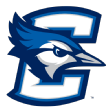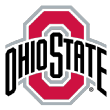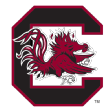The debate over the qualities of schedules usually doesn't begin until February, when the spotlight starts to shine on the NCAA tournament selection process.
But why wait?
Nonconference schedules can make or break teams' seeding or their inclusion in the 68-team tournament field. That has made schedule construction an art form. Programs need enough wins to enter the conversation for tournament selection, but there also must be enough quality opponents to make those wins worth something. And it all begins as soon as the 2022-23 season tips on Nov. 7.
Here's a look at the programs that took on a November and December collection of games that should help them (and prepare them) come March -- and which teams might look back with some regret (or at least are playing a softer schedule than usual).
Which teams helped themselves the most with their schedule?

UConn Huskies: One could argue that this schedule is too difficult. Did the Huskies take on too much, especially now that Paige Bueckers will miss the season? Of course, Geno Auriemma would never subscribe to that theory. Play the best to be the best is what UConn is attempting this season. This is the country's top nonconference slate, the kind of schedule that is good for the sport.
With games against the Texas Longhorns, NC State Wolfpack, Duke Blue Devils and possibly Iowa Hawkeyes (if both reach the Nov. 27 championship game of the Phil Knight Legacy in Portland, Oregon) all before the end of Thanksgiving weekend, the Huskies have a November equivalent to an NCAA tournament run. Throw in the South Carolina Gamecocks, Notre Dame Fighting Irish, Maryland Terrapins, Tennessee Lady Volunteers, Princeton Tigers and Florida State Seminoles, and UConn has a gauntlet.
As many as seven of those opponents have Elite Eight potential. UConn lost four games outside the Big East last season yet survived to reach the NCAA tournament title game. This slate of games is even more rigorous. Only the results and the Huskies' showing in March will tell us if it was worth it.

Tennessee Lady Vols: These aren't quite the Pat Summitt days of play anyone, anywhere, but the Lady Vols will be regularly tested in the first two months. That should pay dividends come March. They open the season with consecutive games against the Ohio State Buckeyes, Atlantic 10 favorite UMass Minutewomen and Indiana Hoosiers, then immediately head to the Battle 4 Atlantis on Nov. 19-21 in the Bahamas, where the potential opponent in the finals could be Texas or the Louisville Cardinals. Tennessee also plays the Virginia Tech Hokies, the Stanford Cardinal and UConn, giving the Lady Vols the best nonconference schedule of any team in the SEC and one that is worthy of a No. 1 seed.

Creighton Bluejays: The seventh-rated nonconference schedule is the biggest reason the Bluejays received an at-large bid and a No. 10 seed to the NCAA tournament a season ago. Then they turned it into an appearance in the Elite Eight. With games at the South Dakota Coyotes, South Dakota State Jackrabbits and Stanford, plus matchups with the Arkansas Razorbacks and Nebraska Cornhuskers in Omaha, this slate is even better. Two wins among this group with expected success in the Big East and Creighton will be much better than a No. 10 seed this coming March.

Belmont Bruins: This is what mid-major nonconference scheduling should look like. Belmont is the favorite to win the Missouri Valley Conference in its first year in the league. Should they falter in the conference tournament, the Bruins have quality games in the first two months to enhance their at-large résumé. Belmont will host Louisville and the Georgia Tech Yellow Jackets, visit Iowa and the Georgia Lady Bulldogs, and play the Villanova Wildcats, and possibly the Baylor Bears in Florida at the Gulf Coast Showcase on Nov. 25-27. The Bruins are good enough to win any of those games. If they do, an NCAA tournament bid will arrive.

Ohio State Buckeyes: The Buckeyes didn't play a single nonconference game against a team inside the NET top 100 last season, but benefitted from a favorable Big Ten schedule to post a 23-6 pre-NCAA tournament record. That's why even with a share of the Big Ten regular-season title, the Buckeyes only earned a No. 6 seed. Success against this season's schedule will have much more impact. The Nov. 8 matchup with Tennessee in Columbus is one of the best games of the first week. Louisville in the ACC/Big Ten Challenge, plus the South Florida Bulls and either Arkansas or the Oregon Ducks in the San Diego Invitational is much better preparation for this veteran Ohio State team.

Toledo Rockets: When does a 26-5 team that dominates its league fail to get an at-large bid? When only one of those 26 wins comes against a team in the top 100 of the NET, and five of nine nonconference games were against teams outside the top 250. A bad schedule cost the Rockets a chance to play in the 2022 NCAA tournament. Coach Tricia Cullop fixed that this offseason. Some clunkers are still there, but Toledo added Duke and the Michigan Wolverines to go with repeat games against the Missouri State Lady Bears and Dayton Flyers. That should help immensely should the MAC regular-season favorites falter in the conference tournament again.
Which teams' schedules could have been tougher?

South Carolina Gamecocks: The Gamecocks' schedule isn't bad. Maryland, Stanford and UConn are still there. This just isn't the usual South Carolina nonconference slate, one that was tops in the country last year. The Gamecocks have a set a high bar for scheduling that they didn't quite reach this season. It's hard to see an East Tennessee State Bucs where there was an NC State last season, or a Memphis Tigers where there was a Duke.

Stanford Cardinal: The same goes for the Cardinal. The nonconference schedule doesn't meet the program standard this year. South Carolina and Tennessee are the only top-10 caliber teams Stanford will play all season, and the Cardinal don't play a single nonconference game after Dec. 20. This is a veteran group and, like South Carolina, a No. 1 seed seems inevitable, but the tests in March aren't quite as easy if those in November and December weren't challenging enough.

Notre Dame Fighting Irish: The Irish have grown into a veteran group that should have aspirations for an Elite Eight or beyond. Yet the Irish have a schedule more designed for a young team simply trying to grow confidence. Other than a back-to-back contests against Maryland and UConn to begin December, Notre Dame plays no one outside of the ACC that builds the résumé. If the Irish go 0-2 in those games, the margin for error in a highly competitive ACC gets small if they hope to receive a high NCAA tournament seed.

LSU Tigers: The excitement of seeing Angel Reese in a Tiger uniform is tempered by the fact LSU doesn't play a marquee game until Jan. 30 when Tennessee visits the Maravich Center. The Tiger's best nonconference game is a meeting with the Oregon State Beavers in Maui a week before Christmas. LSU's chances of a high seed all rest with an SEC slate that is also lacking, with only one game each against the Lady Vols and South Carolina.

Virginia Tech Hokies: The schedule for the Hokies was likely done, or close to it, by the time Ashley Owusu and Taylor Soule transferred to Blacksburg, but that doesn't ease the disappointment. Potential first-team All-American center Elizabeth Kitley, leading what could be a top-10 team, could use more of a showcase than just a visit to Tennessee and hosting Nebraska. Games against the Kentucky Wildcats and Missouri Tigers in the Bahamas aren't as appealing as they would have been a year ago.
